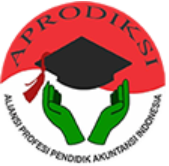THE EFFECT OF ACADEMIC PROCRASTINATION ON THE ACCOUNTING LEARNING ACHIEVEMENT USING SELF-EFFICACY AS MODERATING VARIABLE AT SMK YPKK 1 SLEMAN
DOI:
https://doi.org/10.21831/jpai.v13i1.5191Abstract
This research has two objectives. First, it is aimed to determine the effect of Academic Procrastination on the Accounting Learning Achievement in Accounting Study Program at grade X of SMK YPKK 1 Sleman academic year of 2014/2015. Second, it is amied to determine the effect of Academic Procrastination on the Accounting Learning Achievement through Self-efficacy as moderating variable in Accounting Study Program at grade X of SMK YPKK 1 Sleman academic year of 2014/2015
The population in this study was the students in Study Program at grade X of SMK YPKK 1 Sleman consists of 54 students. Data collection in this research were Questionnaire and Documentation. The questionnaires consisted of academic procrastination and self-efficacy instruments while the documentation was used to obtain Accounting Learning Achievement data.
Research results showed that: (1) There is a significant negative effect of Academic Procrastination on the Accounting Learning Achievement in Accounting Study Program at grade X of SMK YPKK 1 academic year of 2014/2015, with rx1y = 0.575; r2x1y = 0.331; t-count -5.068 > t-table and sig 0.000 < 0.05; (2) There is significant negative effect of Academic Procrastination on the Accounting Learning Achievement through Self-efficacy as moderating variable in Accounting Study Program at grade X of SMK YPKK 1 academic year of 2014/2015, with rx1y = 0.699; r2x1y = 0.489; t-count -2.030 > t-table and sig 0.048 < 0.050.
Keywords: Accounting Learning Achievement, Academic Procrastination, Self-efficacy
Downloads
Published
How to Cite
Issue
Section
License
Authors who publish with Jurnal Pendidikan Akuntansi Indonesia journal agree to the following terms:
- Authors retain copyright and grant the Jurnal Pendidikan Akuntansi Indonesia journal right of first publication with the work simultaneously licensed under Creative Commons Attribution License (CC BY 4.0) that allows others to share the work with an acknowledgment of the work's authorship and initial publication in this journal.
- Authors can enter into separate, additional contractual arrangements for the non-exclusive distribution of the published version of the work (e.g., post it to an institutional repository or edit it in a book), with an acknowledgment of its initial publication in this journal.
- Authors are permitted and encouraged to post their work online (e.g., in institutional repositories or on their website) before and during the submission process, as it can lead to productive exchanges, as well as earlier and greater citation of published work.






